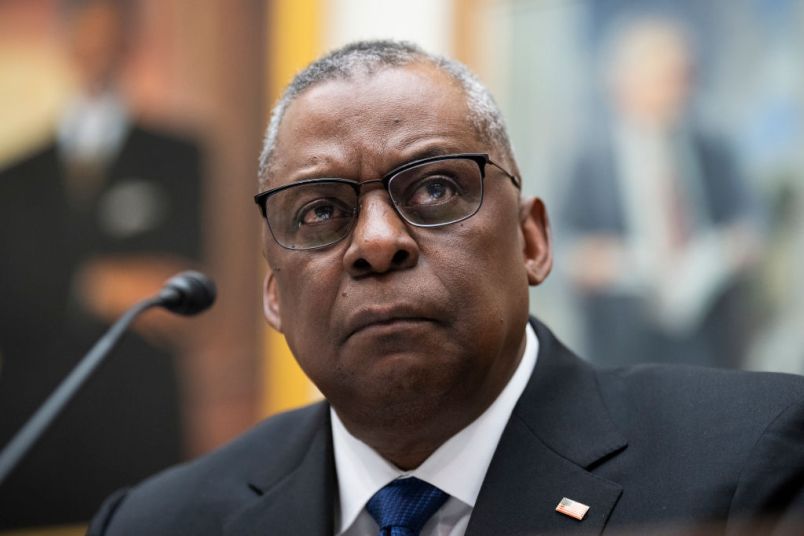In the wake of his visit to Kyiv, Secretary of Defense Lloyd J. Austin III declared that America’s objective in arming Ukraine was to weaken Russia. “We want to see Russia weakened to the degree it cannot do the kind of things it has done in invading Ukraine,” he said. One can privately hope for such an outcome without declaring it publicly as America’s goal.
Such a statement portrays the war as being between the United States and Russia, it will make Russian President Vladimir Putin even more intransigent and even more willing to escalate, and it will make it impossible for the United States to play a constructive role in promoting negotiations to end the war.
There are Washington foreign policy experts who believe that Ukraine can win this war with Russia. Anders Aslund from the Atlantic Council, who was once a senior advisor to Boris Yeltsin, wrote on twitter, “My guess is that Russia will have to give up all its territories in Ukraine and face total defeat.” I have no inside information on the war’s progress, but I doubt Ukraine can win outright; and even if it were to win, I would fear that victory would come at the expense of several million dead, up to ten million displaced, and the country physically destroyed. Russia’s Vladimir Putin has already shown that he is not bound by any moral compunctions in waging war. That’s not to mention in the absence of a negotiated ceasefire, the danger of a wider war.
It may be that Putin will prove unwilling to negotiate. There have been reports that he has ruled out negotiations. But what seems unlikely today can become possible tomorrow, and the United States should do whatever it can to encourage, rather than discourage, negotiations between Ukraine and Russia. In negotiations, Ukraine, as well as Russia, may have to make concessions. Ukraine’s President Volodymyr Zelensky has already offered to forgo Ukraine’s application for admission to NATO and to accept a neutral Ukraine. More concessions may be needed, but they are worth making to prevent the destruction of the country. Putin and Russia will still emerge from this conflict significantly weakened. NATO will have been strengthened, Russia’s non-petroleum economy will have been shattered, and Russia’s status as a world power will have been undermined.
If the United States wants to achieve a negotiated settlement, it will have to avoid a succession of provocations of which Austin’s statement is only the most recent. President Biden’s staff tried to explain away his statement in Poland in March that Putin “cannot remain in power,” but his staff did not try to explain away his subsequent statement that Putin is a “war criminal.” I would like to see all these outcomes: Russia’s army in tatters, and Putin out of office and on trial in the Hague, but the White House has to understand the difference between its private hopes and objectives and what it must say publicly to achieve an end to the conflict in Ukraine. None of this is inconsistent with arming Ukraine to defend itself.
One final point: I think there is also a problem with the administration portraying the war in Ukraine as part of a global conflict between democracies and autocracies. Our foreign policy experts are echoing the questionable framework of two world wars and the Cold War. It was inaccurate then (Stalin’s USSR was our ally in World War II, and we had autocracies in Asia and Latin America on our side during the Cold War). Today, that outlook suggests that preventing war and conquest can only be achieved by the removal of autocratic and quasi-autocratic governments in scores of countries, including Russia, China, North Korea, Saudi Arabia, and Turkey. That’s folly of the first order.
There would have been good reason to defend Ukraine against Russia even if Zelensky were a monarch rather than Ukraine’s elected president. It’s the century old principle of international law of preventing strong nations from denying sovereignty to weaker, smaller neighbors. The conquest of Belgium was always a tripwire. The same principle applied to blocking Iraq’s invasion and takeover of Kuwait. It’s not just a moral question. It’s in our national interest to prevent conquests like this, especially those that involve nuclear powers. So arm Ukraine to the teeth; do what is necessary to deter Russia; but at the same, seek and declare publicly America’s support for a negotiated end to the war.


